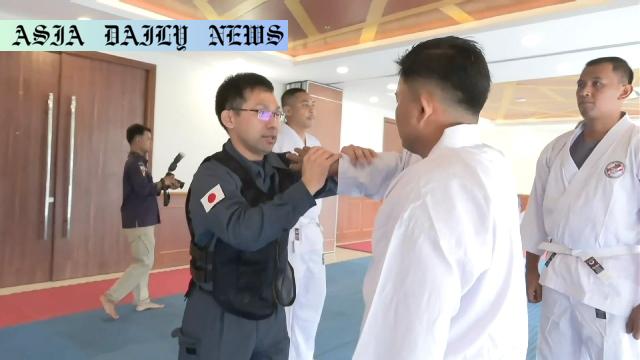Sea Lane Safety: Japan Coast Guard experts train Indonesian counterparts to enhance maritime security in key global waterways.
Key Point 1: Japan Coast Guard experts are conducting a five-day maritime security training program in Jakarta.
Key Point 2: This training focuses on handling suspicious vessels and subduing illegal operators on ships.
Key Point 3: Indonesia’s strategic position in sea lanes, including the Straits of Malacca, is vital for international trade and energy flow.
Key Point 4: The partnership emphasizes Japan and Indonesia’s cooperation to ensure safe and secure global maritime transportation.

Enhancing Maritime Security Through Japan-Indonesia Collaboration
Sea lanes are critical lifelines of the global economy, ensuring the seamless movement of goods and energy supplies internationally. Recognizing this importance, the Japan Coast Guard, in collaboration with the Indonesian Coast Guard, has initiated a transformative partnership to secure vital maritime routes. With a focus on advanced maritime surveillance and security techniques, this initiative reflects the shared priorities of two nations committed to safe, resilient, and strategically managed waters.
The Training Framework: A 5-Day Journey to Mastery
The five-day maritime training program symbolizes a unique exchange between Japan’s seasoned expertise and Indonesia’s rising maritime capabilities. Held in Jakarta, this initiative hosted by the Japan International Cooperation Agency addresses emerging challenges in maritime security, including illegal operations and suspicious vessel activities. On day one, Japanese instructors demonstrated techniques to subdue crew members efficiently and ensure onboard safety. Such hands-on expertise adds valuable skills to Indonesian officers, strengthening their ability to address unlawful activities.
Strategic Importance of the Straits of Malacca
The Straits of Malacca serve as a pivotal artery for global commerce, especially for nations like Japan, which depends on these waters for 90% of its crude oil imports. As the largest archipelago nation, Indonesia’s territorial waters serve as a gateway for international navigation. With ships increasingly traversing these routes, ensuring their safety is not merely a regional concern but a global necessity. The training program highlighted this relevance, directing efforts toward creating greater harmonization between countries in managing critical maritime junctions.
Fostering Relationships for Global Impact
This grassroots collaboration signifies a broader trend of mutually beneficial cooperation in maritime security. Experts like Abe Seiki, a senior Japan Coast Guard officer, reiterated that the synergy created here contributes directly to safeguarding international trade routes. Through this exchange, Indonesia’s Coast Guard personnel are not only gaining technical skills but also learning to implement strategies that align with international standards of safety.
Conclusion
The Japan-Indonesia partnership in securing sea lane safety underscores the critical need for shared vigilance in maritime governance. As global dependencies deepen, joint programs like this five-day training initiative bring forth a model of collaboration that can inspire similar actions across the Asia-Pacific and beyond. Investing in skills, technology, and strategic foresight ensures that maritime routes remain secure, resilient, and vital to the world economy.
Commentary
An Imperative for Secure Maritime Lanes
The collaborative training between the Japan and Indonesia Coast Guards serves as a reminder of the immense responsibility nations share when it comes to maritime safety. Sea lanes are not merely geographical points but strategic lifelines for global commerce, energy transportation, and security. The Straits of Malacca, often referred to as the ‘aorta’ of Japan’s economy, illuminates the direct impact of secure waterways on a nation’s economic vitality. Thus, efforts to strengthen maritime lanes are not just advantageous; they are absolutely essential.
Synchronizing Strengths for Future Benefits
What stands out about this initiative is its reciprocal nature. While Indonesia is gaining valuable skills and techniques, Japan is simultaneously fostering cooperation that protects its own economic interests. This balance allows for a deeply integrated approach toward handling concerns like illegal vessel operations and boosts both countries’ maritime capabilities. Such partnerships pave the way for dynamic, unified efforts in addressing international security.
Inspiring Global Outlooks on Maritime Security
The success of Japan and Indonesia’s five-day training program can set a precedent for future collaborations in the region and beyond. As global tensions rise over resources and trade routes, fostering trust and shared knowledge among neighboring countries becomes vital. This cooperation signifies not just a step forward for Indonesia and Japan but also serves as a model for a united global maritime strategy to mitigate threats and strengthen economic lifelines worldwide.


